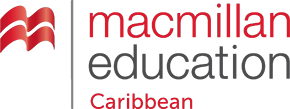How to teach successful revision strategies to primary students
Why do we need to revise?
Revision is not revisiting. These are two different things. Good quality first time teaching means revision is much more effective. Revision means to revisit a subject or some specific content. But how we do that?
I recently asked a group of teachers who taught them to revise and the answer, on the whole, was no one. A student teacher told me she was just expected to know what strategies to use. She never really understood that certain strategies would work better for some than others. Most students have limited strategies that they use. These students grow up into teachers and parents who still know very little about revision. The key is to find the strategy or technique that suits the student’s style but also the content they are revising. Students should start well in advance. Give them support in making a schedule that is doable and allows for life. I truly believe in the saying ‘Fail to plan, plan to fail’.
It is important that students who are revising are happy and relaxed and don’t feel guilty about taking time out to enjoy themselves. Parents need to understand that putting the student under pressure puts them on the path to failure. They need to carry on enjoying the activities that make them happy. Praise students for the revision they carry out. They also need some accountability, so planning as a family and including teachers is a great idea as everyone knows the schedule.
Students should rise early as the brain absorbs more information and is more adaptable to tricky content when it is fresh and the pathways to long term memory are not clogged with short term memory problems. For example, ‘where is my bag’ or ‘I am going to be late for class’.
A healthy diet feeds the brain and keeps the student alert and focused. Poor nutrition or feeling hungry results in students feeling tired and lethargic which is not a good state to be in when trying to learn. Dehydration is also overlooked when learning. The brain needs to be hydrated to function to its potential. A banana and a glass of water are powerful tools in revision sessions.
Teachers and carers should introduce children to as many different techniques as they can so that they can experience them and choose the ones that they enjoyed and felt they could engage with the most. Planned revision sessions should be varied and snappy to keep children on task and interested. The top technique when revising remains as quick quizzes. Parents can find opportunities to teach the content. When out shopping they can ask relevant questions like what percentage of these fruits do you like? Is this a plant or animal? Being aware of what children are learning at the moment means that opportunities to learn are not missed. Modelling is also useful. A child once told me I had said sterile 8 times. A teacher said that it wasn’t possible for a child of that age to understand this word. So, I modelled it at every opportunity.
The key message is we have to teach the children how to revise, when to revise and explain why we revise. Ultimately it should be an enjoyable task, not one to be avoided. Oh, and there is no room for procrastination!
- Debbie Roberts, Co-Author of the Mission:Science Series
